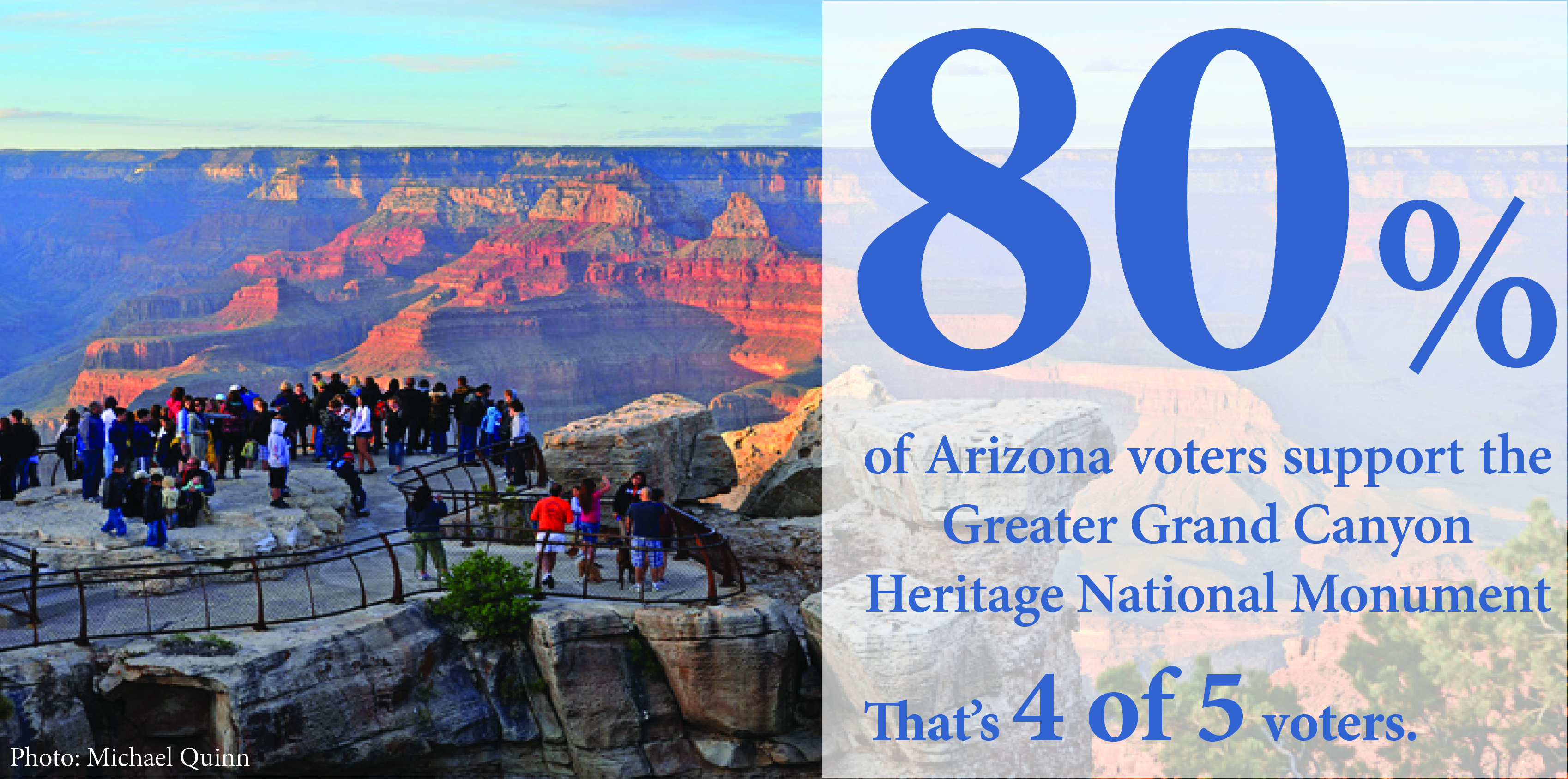
 by Roger Clark, Grand Canyon Director
by Roger Clark, Grand Canyon Director
Its finding that 80 percent of Arizona voters support the newly proposed Greater Grand Canyon Heritage National Monument demonstrates broad endorsement across party lines.
But not everyone is pleased with the findings. “I can’t believe that that’s what Western voters want,” said Mohave County Supervisor Buster Johnson, in response to the poll results. “It’s another example of the federal government taking land away….That land could be used to create more jobs.”
Fact check: Current uranium mining around the Grand Canyon employs only about 30 people, as compared to thousands of jobs in the recreation and tourism industries, which are the economic backbone of the region.
"We consume the water. We breathe the air," said Havasupai Tribal Councilwoman Carletta Tilousi. "We would like for that to be pure and clean."
According to another report: "The Arizona Game and Fish Department and some state officials and members of Congress, however, oppose the plan. They say a national monument would complicate wildlife management and have a negative impact on hunting and recreation."
Fact check: The monument proclamation would allow for grazing, recreation, hunting, fishing, and motorized access to continue under existing regulations. Nothing in the proclamation “affects the jurisdiction of the State of Arizona with respect to the management of fish and wildlife.” Moreover, the most recent poll shows 76 percent of hunters and anglers support the monument.
In an op-ed distributed to regional papers, its director championed a joint policy brief that the Arizona Commerce Foundation and the Prosper Foundation recently released. He said it was “the centerpiece of the discussion at the latest Arizona Chamber Leadership Series breakfast, which featured a conversation with Sen. John McCain and former Sen. Jon Kyl.” He added: “It provides a perfect snapshot of an administration in D.C. that is completely out of touch with the unique issues facing the West.
Fact check: This small minority of politicians are the ones who are truly out of touch with Arizona’s voters and the people who have lived in the Grand Canyon for millennia.
In last week’s press conference to discuss the poll and proposed monument, Havasupai Councilwoman Carletta Tilousi said: “As a councilmember who served actively in developing this act, I believe that it has given us tribes the opportunity to sit at the table to create long-term protection plans for the Grand Canyon. We believe it’s the right way to go…If you’ve lived in our region, you would understand that we are all facing cancer clusters. This national monument act is just another tool that will help protect the Grand Canyon, to prevent any new uranium mining in this area, and to protect hiking trails, wildlife, and sacred areas for future generations.”
Only seven percent of those surveyed said they "strongly oppose" the idea of establishing the national monument to protect the area around Grand Canyon National Park.
"The numbers don't lie," Arizona Congressman Grijalva said in an emailed statement. "Asking people whether they support the Grand Canyon is like asking them whether they support their own home. We're seeing enormous bipartisan support for a national monument to protect the beautiful and sacred lands and waters around the national park, and I believe that a divided Congress can come together to get this done."
The Colorado River below Glen Canyon Dam is heating up. Find out why.
Read MoreGroundwater pumping at a uranium mine near the Grand Canyon will affect the canyon's springs, scientists says.
Read MoreArizona Governor Katie Hobbs is the latest elected official to call for an environmental review of Pinyon Plain uranium mine.
Read More